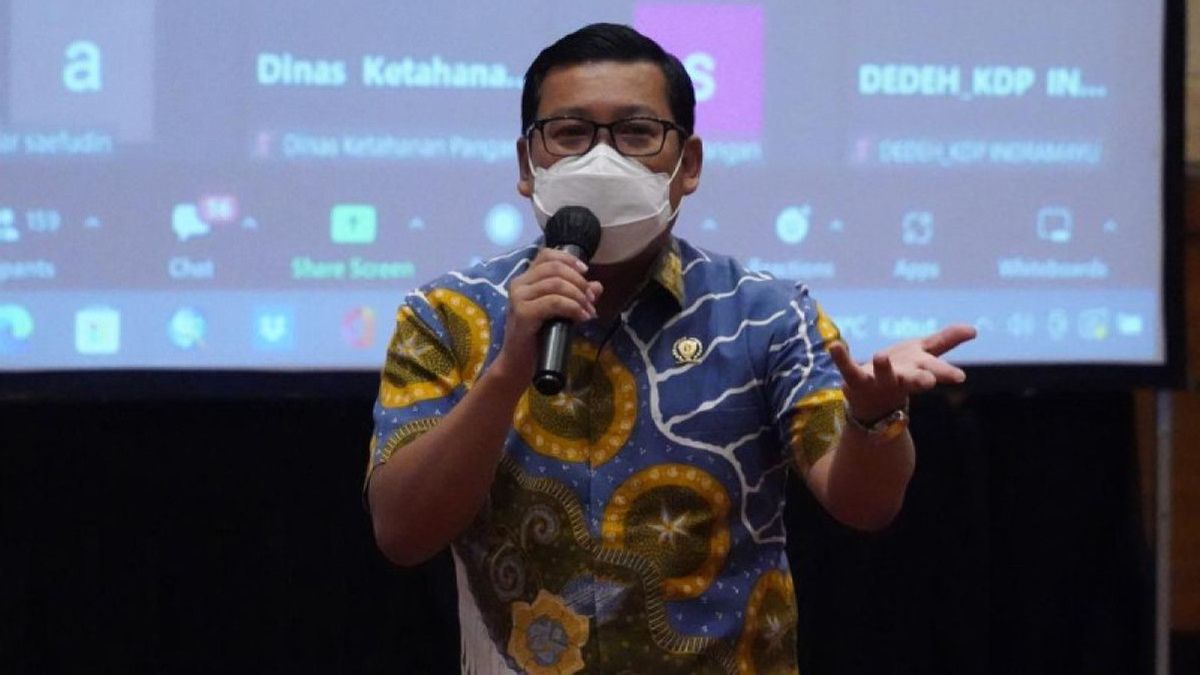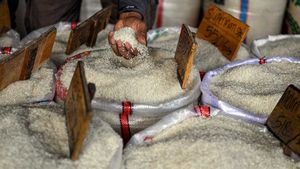JAKARTA - The Head of the National Food Agency encourages all rice stakeholders to be able to increase production in the second semester until the end of 2023.
Arief said this increase in grain and rice production was needed to maintain food stability.
"In order to maintain food stability and national economic recovery, we invite all elements of the nation to strive to increase the production of grain and rice in the second semester," he said in Jakarta, Monday, September 4.
This step, continued Arief, also remembers that in general at the end of the year, the trend of grain production tends to decrease so that it has the potential to increase the tension of business competition in the field.
"This condition needs to be anticipated by continuing to increase domestic production so that the risk of rising grain and rice prices can be minimized," he explained.
At the milling level, said Arief, business actors need Harvest Dry Grain (GKP) to be processed into rice. Several rice milling business actors admitted that the GKP currently cannot meet operational needs, so the factory cannot operate optimally and the price of GKP continues to move up.
Arief argues that this condition should be an opportunity for farmers to increase their production and productivity.
Our nation's potential is actually to increase production because at this time the number of GKP needs for rice pangolins is not balanced, both small, medium, and large scale. Mainly in the second semester until the end of the year. So let's encourage domestic production together," said Arief.
On the other hand, NFA has assigned Perum Bulog to intervene by distributing rice food assistance to 21.353 million Beneficiary Families (KPM) for the next three months.
NFA together with the Regional Government also continues to hold Cheap Food Movements (GPM) in various regions in collaboration with BUMN, BUMD, as well as related associations and business actors.
In line with this, market operations through the Food Supply and Price Stabilization program (SPHP) also continue to be carried out through double channels, namely the people's market and modern retail. This is done so that SPHP Rice can be easily accessible to all levels of society.
Arief said he was optimistic that the price of rice could be controlled if all parties worked together and collaborated, because the Government Rice Reserve (CBP) stock was sufficient to meet the government's needs until the end of 2023.
"Currently, the stock is disbursed at 1.54 million tons, in the process of fulfilling another 400,000 tons as part of the assignment to Bulog for two million tons," he said.
VOIR éGALEMENT:
In the future, Arief hopes that with the stable supply and price of rice, farmers and rice milling business actors can be more enthusiastic about producing, because business certainty is one of the main factors in maintaining the sustainability of the business world, including improving the welfare of farmers.
"Especially we encourage the spirit of farmers and milling to produce and increase their productivity in line with the direction of President Joko Widodo, so that the procurement and fulfillment of rice reserves in the future can be maximized from within the country," he added.
The English, Chinese, Japanese, Arabic, and French versions are automatically generated by the AI. So there may still be inaccuracies in translating, please always see Indonesian as our main language. (system supported by DigitalSiber.id)
















